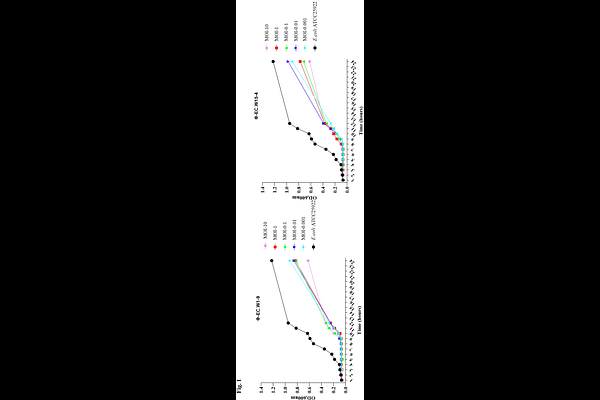Role of Phage-Antibiotic Combinations in Reducing ESBL-Producing and Carbapenem-Resistant Escherichia coli

Role of Phage-Antibiotic Combinations in Reducing ESBL-Producing and Carbapenem-Resistant Escherichia coli
Shamsuzzaman, M.; Kim, S.; Kim, J.
AbstractThe emergence of extended-spectrum {beta}-lactamase (ESBL)-producing E. coli and carbapenem-resistant E. coli (CREC) poses a significant global health concern. Here, we isolated and characterized two novel phages and studied their effectiveness with antibiotics against ESBL-producing E. coli and CREC. The isolated phages, EC.W1-9 and EC.W15-4, belonged to the Podoviridae and Myoviridae families, respectively. They are safe for bacterial control as they do not contain integrase or toxin-coding genes. The phage combination considerably enhanced lytic ability, effectively lysing 61.7% of the 60 E. coli isolates, compared to lysis in the 41.6% - 55% range by individual phages. Phages EC.W1-9 and EC.W15-4 combined demonstrated 100% susceptibility against different E. coli sequence types, including ST73, ST648, ST2311, ST405, ST7962, ST131, ST13003, and ST167. Additionally, studies showed synergy between antibiotics and phage combinations against ESBL-producing E.coli, with susceptibility of 73.3% and 54% for CREC. The combined treatment of isolated phages and antibiotics significantly increased survival rates in BALB/c mice exposed to various ST types of ESBL-producing E. coli and CREC, including ST131, ST648, and ST410. Survival rates against KBN7288 (ST131) increased by approximately 75% and 50% compared to individual phages EC.W1-9 and EC.W15-4, respectively. When phages and antibiotics were combined, survival rates against E. coli isolates KBN5617 (ST410), KBN6241 (ST410), and KBN4004 (ST648) ranged from 75% - 100%. Finally, this study highlights the importance of phage and phage-antibiotic combinations to prepare phages for killing different ST types of ESBL-producing E. coli and CREC isolates.